The rule change that put Brisbane in race against mega-cities
Brisbane’s Olympic bid benefited from a drastic change to the vetting process which singles out potential hosts earlier in the process and prevents non-runners spending big and getting nowhere.
SEQ Olympics 2032
Don't miss out on the headlines from SEQ Olympics 2032. Followed categories will be added to My News.
Initially, the Queensland bid was going to be aimed at the 2028 Olympic Games.
Little did the city powerbrokers know that under the IOC’s new model, they were determined to announce the 2028 host (Los Angeles) alongside their 2024 choice, which was Paris.
It was all part of stopping the age-old practice of saddling host cities and countries with a massive bill to enter the race, with no guarantee of success.
It was around the time IOC President Thomas Bach announced Agenda 2020, aimed at making the Games more sustainable and legacy driven.
He put John Coates in charge of the special committee, whose report would ultimately establish the Future Hosts Commission.
Again, this is crucial.
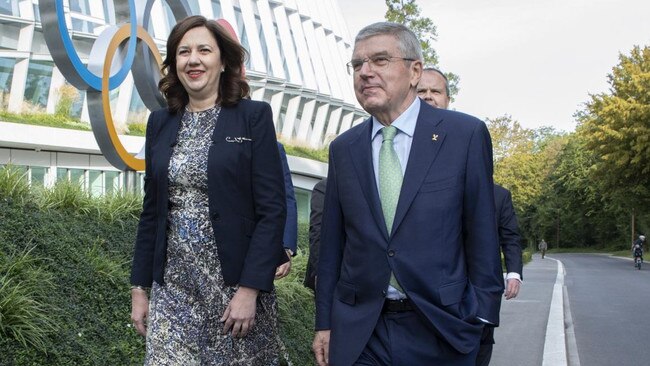
Mr Coates essentially wrote the report that enabled Brisbane to have a crack at an Olympic bid without the massive costs of the past.
The emphasis of a March, 2015, resolution of the Council of Mayors SEQ was to conduct a feasibility study to determine whether a bid could be competitive.
On March 13, 2015, Cr Quirk wrote to AOC boss Mr Coates, Premier Annastacia Palaszczuk and then prime minister Tony Abbott to gauge their support for the idea. They all agreed it was worth probing.
Another study was commissioned by the SEQ Mayoral group to determine if an Olympic Games could catalyse major infrastructure investment in South East Queensland to meet population growth.
Next was a comprehensive audit of sporting venues as well as an Olympics masterplan in collaboration with key stakeholders.
There was a key meeting in February 2019, the Olympics feasibility was completed and a few months later a state government taskforce was established.
In September 2019, the premier and an entourage of key stakeholders went to Switzerland to formalise Queensland’s bid.
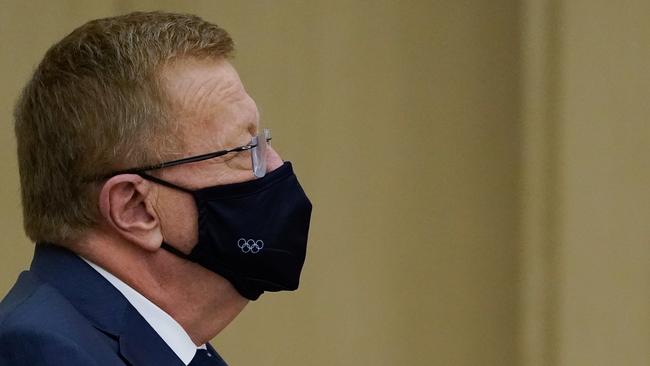
Mr Quirk says it was not all plain sailing in the early days.
“There was a lot of scepticism,’’ he said.
“Some people thought it was just a few mayors having a lend of themselves and it would all go away.
“But we were determined. All the studies said we could do it, even the mass transit investigation, which looked at moving around five million people in the South East by 2032.”
The key challenges that had been identified by the feasibility included the need for better public road infrastructure, adequate quality accommodation and the cost of building new venues.
Luckily, 80 per cent of the venues required already existed, which was a big plus from the IOC’s perspective.
“The feasibility was clear – we could do it and we should do it,’’ said Mr Quirk. “We had a dedicated team of experts working on it, including a chap named Craig McLatchey, who was quite extraordinary.’’
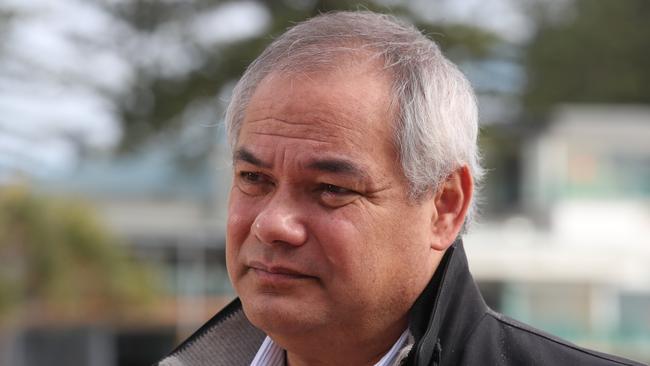
Another hurdle was Gold Coast Mayor Tom Tate, who believed his city council wasn’t getting value for money out of its ties with the SEQ Council of mayors.
“Tom wrote to me one day and said his attitude to the SEQ council of mayors was a bit like buying a car,’’ Mr Quirk said.
“He said it was drive away, no more to pay. But after plenty of coaxing, we made sure Tom understood how big this would be for the Gold Coast and he was on board.
“That unity in these matters is so important,’’ he said.
CHANGING THE RULES
There is a growing sense within the politically charged bureaucracy of international sport that Australia would not have won the 2032 Olympics under the old regime.
The reform agenda outlined by Mr Bach when he was elected in 2013 was the catalyst for the Queensland bid.
It meant that finally cities with populations of about 5 million could compete with the mega cities that have traditionally been selected to host the Games.
There is also much scepticism – rightly so and particularly in the regions – to the real cost of Queensland’s winning 2032 Olympic bid.
That wariness is entirely logical and expected, considering the massive costs blowout to Athens and Rio De Janeiro, and the failed ongoing legacy of hosting an Olympics.
The International Olympic Committee is now determined to make the process and cost of trying to host an Olympics much more streamlined and less expensive.
For many years, especially as the Olympic Games was corporatised during the 1970s-1980s, trying to win an Olympics was an incredibly expensive exercise.
In fact, with corruption rife during this period, it took more than money to secure a host city bid.
International sporting politics is complex and brutal.
It is a high-stakes game of cat and mouse, with deals being done at the highest of diplomatic levels.
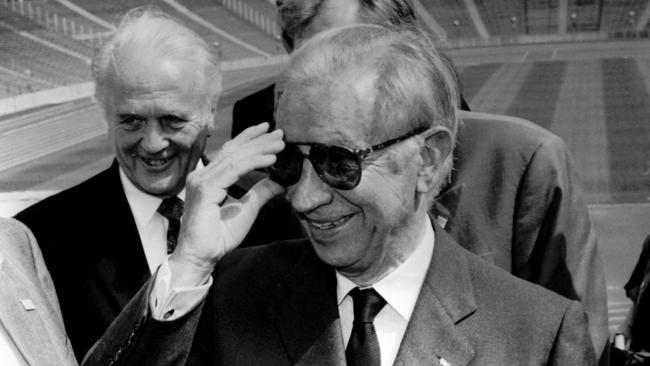
Under the long and tumultous reign of former president Juan Antonio Samaranch, it was not uncommon for IOC delegates to be wined and dined by host countries, with suggestions of lavish gifts being provided upon arrival.
The corruption was particularly endemic to poorer countries such as those in Africa and South America.
In essence, votes could be bought with the right money.
The same level of influence and corruption has been rife in world soccer, with the successful 2022 Qatar bid coming under renewed scrutiny.
However, when former German Olympic fencer Thomas Bach, rolled up his sleeves in 2013 and ran for the IOC presidency, he did so on a platform of transparency and reforming the costly bid process.
No longer would countries go through the lengthy and costly process of preparing a bid, hosting delegates, and competing with other nations for the prize.
Mr Bach appointed his strong ally and confidante, fellow lawyer Mr Coates, to review the bidding regime and come up with an alternative model.
Mr Coates, the Australian Olympic Committee president, recommended what is now known as the Future Hosts Commission be established to directly liaise and engage in dialogue with prospective bidding countries.
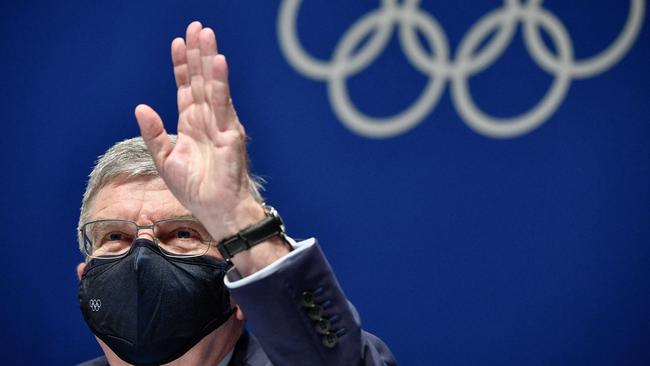
Countries keen to host the Olympics would be assessed by the Future Hosts Commission, which would then determine which bid was its best bet.
Once the commission determined that a certain country was the leading contender, it would enter into “targeted dialogue’’ with that city or region to ensure key benchmarks were being met on technical and financial issues and of course Games venues and athletes’ villages.
If a city in targeted dialogue dropped the ball, the commission would then invite other countries involved to re-enter the fray.
In the case of Queensland, the targeted dialogue phase was announced in February, after the first major presentation was made by Premier Annastacia Palaszczuk in September 2019 in Lausanne, Switzerland.
This more streamlined process, as Mr Bach says, means there are fewer “losers’’ during the Games bidding process.
The cities that the IOC sees as potential hosts are singled out early in the process, and only when the IOC sees them as definite hosts is the real money spent on a bid presentation.
In the case of Australia’s bid, a taskforce was set up in 2018 to supercharge the project.
This entity has been working behind the scenes for more than three years to satisfy the IOC’s stringent protocols around delivery of the Games.
It is a laborious and complex assignment, with virtual late-night meetings happening regularly between Brisbane and Lausanne, the home of the IOC.
In fact, a key IOC hurdle was met and passed in March when Premier Palaszczuk, Prime Minister Scott Morrison and Lord Mayor Adrian Schrinner made a joint pitch for the 2032 Games.
Also enlisted to help the cause was Mackay’s Cathy Freeman, our golden girl who won the Olympic 400m in Sydney in 2000, in what many believe was the best Games ever staged.




